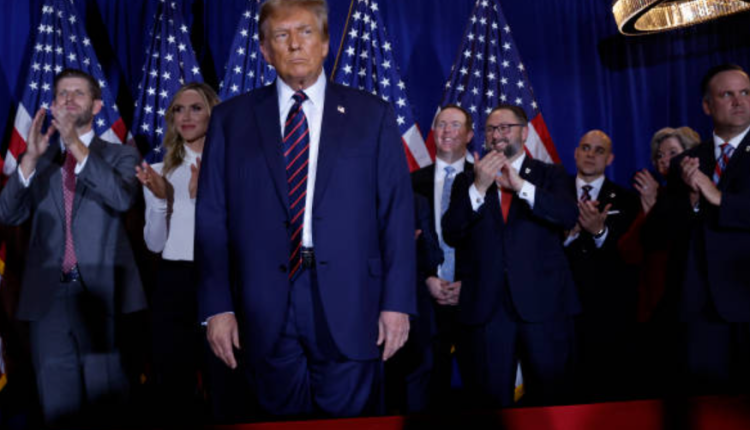Trump’s Ballot Eligibility Up for Discussion in Illinois
The Illinois Board of Elections will vote Tuesday on Trump’s eligibility for the 2024 GOP primary ballot, amid scrutiny of his qualification under the 14th Amendment’s Section Three.
This development stems from a challenge filed by four Illinois registered voters, supported by Free Speech for People, who argue that Trump’s involvement in the January 6 Capitol attack qualifies as participating in an insurrection, rendering him ineligible under Section Three of the 14th Amendment.
Section Three prohibits individuals engaged in insurrections or aiding enemies of the United States government from holding office. This provision has been invoked in various lawsuits nationwide, and the Illinois voters draw parallels with decisions in Colorado and Maine.
The Board engaged a retired judge, Clark Erickson, to oversee oral arguments and provide a nonbinding opinion.
Erickson’s opinion, released on Sunday, recommends dismissing the complaint, stating that the electoral board lacks the authority to determine Trump’s eligibility due to the ongoing constitutional analysis by the US Supreme Court.
Trump’s Compromising Tweet

Despite this, Erickson acknowledges evidence suggesting that Trump understood and exploited the post-2020 election political divide for personal gain by spreading false claims of election fraud. He cites a tweet about then-Vice President Mike Pence as damning evidence contradicting Trump’s denial of involvement in the January 6 events.
Erickson contends that Trump’s subsequent calls for peace on social media were attempts at plausible deniability after inflaming tensions.
The electoral board is not bound by Erickson’s recommendation, and he suggests that if they disagree, they should determine if the evidence presented during the recent hearing proves, by a preponderance of evidence, that Trump engaged in an insurrection.
The decision, whatever it may be, could be subject to appeal before the March 19 primary. The outcome will not only impact Trump’s potential candidacy but also adds another layer to the ongoing national debate about accountability for the events of January 6.

